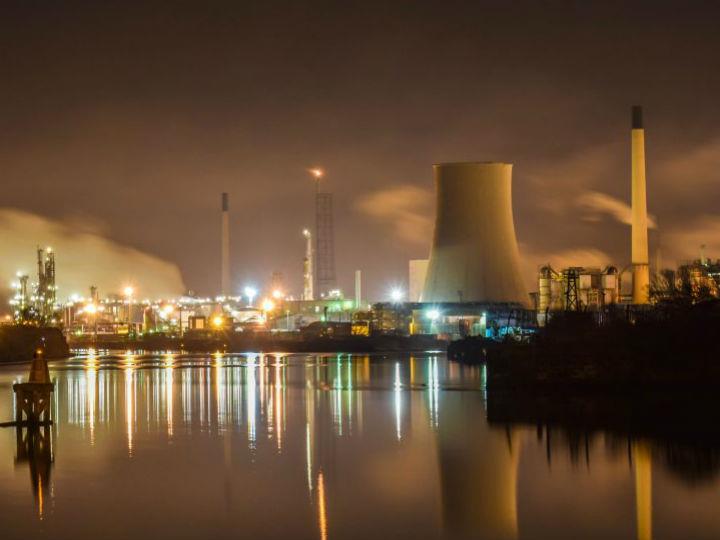by Ursula Woodburn*
The new year has brought with it confirmation that Commission President von der Leyen sees her proposed European Green Deal as the raison d’etre of the European Union – a panacea to existential threats that lie both within and outside the EU.
When she unveiled the uber-strategy to tackle and lead on climate change, she suggested it was ‘Europe’s man on the moon moment’ – something bigger than ourselves, a pebble dropped with centuries of ripples.
And it’s true: her ?€1 trillion, 10-year plan to put us on course to climate neutrality by 2050 could have the ambition and political energy to regenerate the mission and power of the EU, acting as the bloc’s de facto growth strategy and reasserting its position as global leader.
As promised, the first proposals are coming through – with a ground-breaking EU Climate law presented last week.
Questions still remain, however, as to how the Green Deal can deliver an economy-wide transition – a financial boost will only be part of what is needed. A wider economic strategy for success must also include a credible, comprehensive industrial strategy that can enable massive structural transformation.
Research shows that the EU’s industry is responsible for nearly a fifth of the EU total emissions, with the majority coming from the steel, cement, plastics and ammonia sectors.
The successful transformation of these to climate neutrality will be significant for all value chains and related socially important end uses – notably mobility, construction, consumer goods and ICT.
Despite the scale and complexity of the task, carbon-neutral industry is feasible and offers a major investment opportunity. If done right, and by 2050 at the latest, the industrial pillar of the Green Deal can make Europe a world leader in climate-neutral and circular technologies, products and services.
European business needs support and certainty from policy makers to put in place measures that will allow it to remain competitive while decarbonising in line with the 2050 goals and raising ambition in 2020.
The release of the new Industrial Strategy this week, and its accompanying new Action Plan on the Circular Economy, will be an important test of whether the new Commission truly understands this dynamic, and there are some must-have principles that need to be at its core if it is to deliver the substance required for a successful Green Deal:
Alignment
All sectors need to contribute to the EU’s international commitments to fight climate change under the Paris Agreement. The Industrial Strategy should therefore be aligned with the EU’s trajectory towards climate-neutrality by 2050 at the latest, as well as the aim of achieving a circular economy and a decarbonised power sector.
As circularity – in terms of the efficient use of carbon-intensive materials and the reuse of high-quality materials – can take EU industry halfway towards net-zero emissions, the new Circular Economy Action Plan should be a key element of the Industrial Strategy towards a fair and prosperous society.
Combined with the accelerated decarbonisation of electricity and increasing electrification where possible, green hydrogen deployment for prioritised sectors and clean production processes, EU industry has the potential of becoming climate neutral.
Just and inclusive industrial transformation
A well-managed transition to a circular, clean and climate-neutral economy can reinvigorate Europe’s industry, creating new employment opportunities and benefits for local communities.
This will require targeted support from EU funds and a modernisation of Europe’s social contract through the adoption of a forward-looking skills agenda and reforming the structure of social dialogue to start addressing climate risk and low-carbon growth opportunities.
A renewed audit on the needs for the climate-neutral industry transition can support the appropriate re-skilling of people.
Steering investments in the right direction
Decarbonising industry is capital intensive. A significant redirection of finance towards the facilitation of investments delivering innovative, decarbonised industry is essential.
This, linked to a stable, long-term policy framework focused on delivering climate neutral industry is critical, as investment choices taken now and in the next decade will determine the costs and difficulty of decarbonising European industry to net-zero by 2050 at the latest.
The transition to a net-zero economy is an investment opportunity for European companies – with the right policy framework, European industries can gain improved productivity and competitiveness while establishing themselves in a strong position internationally as innovative leaders in their sectors.
Strengthening of markets
A supportive framework should be put in place to foster development and (mass) deployment of clean and circular products. This needs to be inclusive of businesses across all sectors that use carbon-intensive materials in their value chains – from energy generation to retail – as well as governments and consumers.
This will require better product design, eliminating waste and pollution, keeping products and materials in use longer and supporting clean production processes, while demand for high-quality materials circulation must be stimulated by new policies.
*head of EU relations at the European Corporate Leaders Group (CLG Europe)
**first published in: www.euractiv.com




 By: N. Peter Kramer
By: N. Peter Kramer
